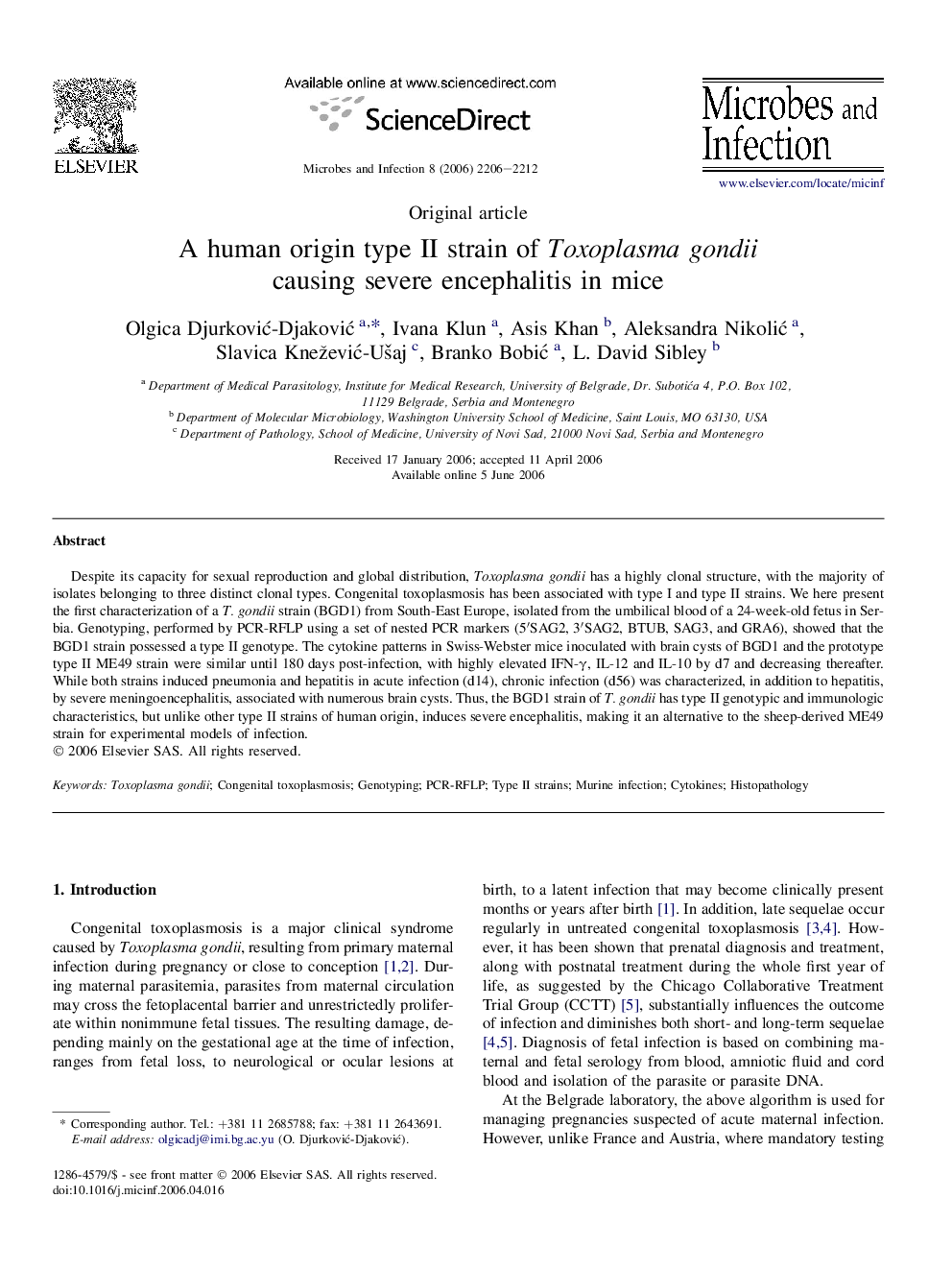| کد مقاله | کد نشریه | سال انتشار | مقاله انگلیسی | نسخه تمام متن |
|---|---|---|---|---|
| 3415927 | 1224984 | 2006 | 7 صفحه PDF | دانلود رایگان |

Despite its capacity for sexual reproduction and global distribution, Toxoplasma gondii has a highly clonal structure, with the majority of isolates belonging to three distinct clonal types. Congenital toxoplasmosis has been associated with type I and type II strains. We here present the first characterization of a T. gondii strain (BGD1) from South-East Europe, isolated from the umbilical blood of a 24-week-old fetus in Serbia. Genotyping, performed by PCR-RFLP using a set of nested PCR markers (5′SAG2, 3′SAG2, BTUB, SAG3, and GRA6), showed that the BGD1 strain possessed a type II genotype. The cytokine patterns in Swiss-Webster mice inoculated with brain cysts of BGD1 and the prototype type II ME49 strain were similar until 180 days post-infection, with highly elevated IFN-γ, IL-12 and IL-10 by d7 and decreasing thereafter. While both strains induced pneumonia and hepatitis in acute infection (d14), chronic infection (d56) was characterized, in addition to hepatitis, by severe meningoencephalitis, associated with numerous brain cysts. Thus, the BGD1 strain of T. gondii has type II genotypic and immunologic characteristics, but unlike other type II strains of human origin, induces severe encephalitis, making it an alternative to the sheep-derived ME49 strain for experimental models of infection.
Journal: Microbes and Infection - Volume 8, Issue 8, July 2006, Pages 2206–2212